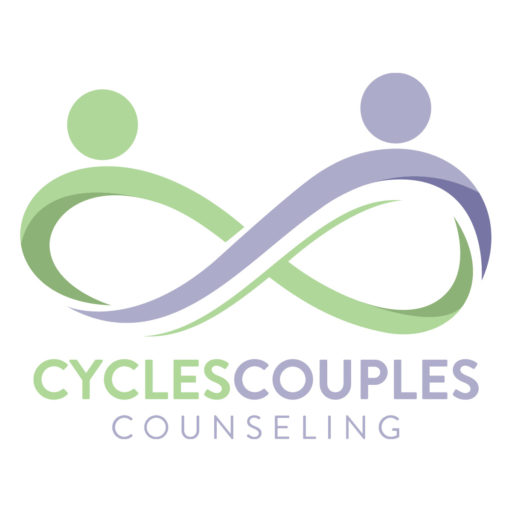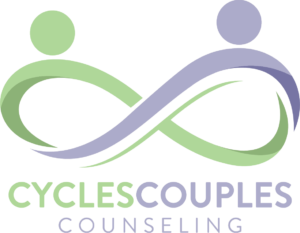Many people enter counseling frustrated. They've tried everything to change their situation, yet somehow, end up with the same dismal results. What most clients fail to notice is the patterns that contribute to these negative outcomes. Over and over again they try different ways to change their situation, only to find they end up right back where they started, alone and upset. Therapists find couples who stay protected and aren't practiced in expressing vulnerability, experience disconnection.
Regardless of the content, the process is the same.
That's right! Whether the problem is parenting, sex or money, the process of arguing about it is the same. Do you express your vulnerability or do you protect yourself? Most couples with negative cycles struggle to express vulnerability. This is because the root reactions of all of these negative emotions lead to disconnection and loneliness. Attachment theory tells us human beings are hardwired to create relationships. We are not meant to live in protection mode and isolation. However, in order to connect, you must be practiced at expressing your vulnerability.
Loneliness is where the dysfunction takes root. For many, this lack of connection or fear of lack of connection can present itself on the surface like negative emotions. It doesn't feel good. In fact, disconnection is a threat to our survival!
In Emotionally Focused Individual Therapy (EFIT), your therapist will help you to understand the cycle of how this emotional process of loneliness and reactivity is showing up in your life and keeping you stuck.
Lack expressing vulnerability leads to lack of feeling connection.
When we feel vulnerable, the first thing most of us do is try to cope. We attempt to find a way to avoid that uncomfortable feeling and get safe again. Often times these struggles for security activate survival methods like fight, flight or freeze. On the outside this can appear like anger, anxiety and panic.
This extreme mindset is very individualistic. The goal is to live, to survive the threat. These methods are great for escaping crises and surviving emergencies. However, they do little to help us reconnect with others in our lives. In fact, many times in survival mode your frontal lobe goes offline. This means memory recall, logic or even auditory comprehension can be impaired, making it even harder to communicate with another. In these moments, most clients are operating in survival of the fittest mode, which means connection to others is not a priority.
Here is where the isolation takes root. You're safe, but you're alone. This is the process the founder of Emotionally Focused Therapy, Sue Johnson, most aptly narrates, "your protection becomes your prison."
When you're arguing with your partner or flooded with anxiety, you're acutely aware of the negative outcomes that can come your way. You're in protection mode after being triggered. While this mode may be great for running away from a bear while camping, this does little to help you in your everyday life.
If you're angry or overwhelmed not expressing emotions vulnerably, rarely is there room for someone else to connect with you while you're in your protected survival state. Most of the time, you will end up consumed in your own emotional experience and isolated.
How do I disrupt this cycle?
This lonely outcome happens to clients again-and-again, leaving them stuck in this dysfunctional cycle of pain and isolation. The most heartbreaking part of this dynamic is that for most clients, no one sees their pain. They're all alone.
Here's where expressing vulnerability comes in. In order to disrupt the pattern of fear of disconnection, maladaptive coping like fight or flight and the resulting isolation, clients must make room for the vulnerable emotions that happen right before their protection kicks in.
Can you notice how your body feels the moment before you yell?
What are you telling yourself moments before you get overwhelmed and shut down?
What happens in that split second before you leave the conversation and shut off your phone?
For most clients, these moments are often skipped over and out of their awareness. Lingering in these emotional experiences usually reveals vulnerable emotions like fear, hurt or longing.
By tapping into this emotional space, clients now have room to respond to themselves or tell someone else who can meet their needs. Here is the missed moment of soothing comfort and connection their negative cycle was lacking!
Who do I express vulnerability with?
For those fortunate enough to have a partner, communicating these vulnerable emotions to them is crucial. However, not everyone is currently in a relationship.
For those who are not in a relationship, it's important to identify who you do have a secure relationship with.
What might your mom say if she saw you scared like this?
How would your coach respond to this worry you have?
What might you expect your therapist to say when you share this with them?
If you're struggling to come up with a person in your life that feels safe to share with, don't forget yourself. Clearly, if you're reading this, you want to help yourself. And the good news is, you can. You can be your own secure base.
Can you identify at what age you first started noticing hiding your vulnerable emotions? Is there a situation in particular that comes up?
What did you need someone to tell you then? What did you want them to do?
What would it be like to talk to that 8 year old little boy part of yourself right now? What would you tell him?
What would it be like to tell yourself those same words today?
In order to disrupt this maladaptive coping cycle that leaves you protected, but alone, you need to make space for your vulnerable emotions to get comforted. You need to express your vulnerability in order to get your needs met. While the risk of expressing vulnerability and being rejected is ever present, the reward of soothing connection makes it all worthwhile.
If you or someone you know is struggling with painful emotional experiences and just can't seem to find the way out, direct them to schedule an Emotionally Focused Individual Therapy session with Cycles Couples Counseling.
Learn more about EFT Therapy in California.

